Space-Game, project launch
The Human-Humanoid Space-Game
The complexity and unpredictability of the everyday world in which we humans move, usually without any effort, represents a big challenge for robots. Technical perception systems are feed with space data in the form of numbers, geometries, and images into its control algorithms. Yet up to now, they are not able to place these parameters in a culturally meaningful relationship to each other. Hence, technical systems exist in other realities than humans. We understand a humanoid robot as an embodied artificial agent which perceives information from its environment and has capabilities to react to it, as well as some aspects of autonomy. This leads to an accumulation of problems as Humanoids are being developed for the most intimate areas of human existence, but they cannot participate in our reality.
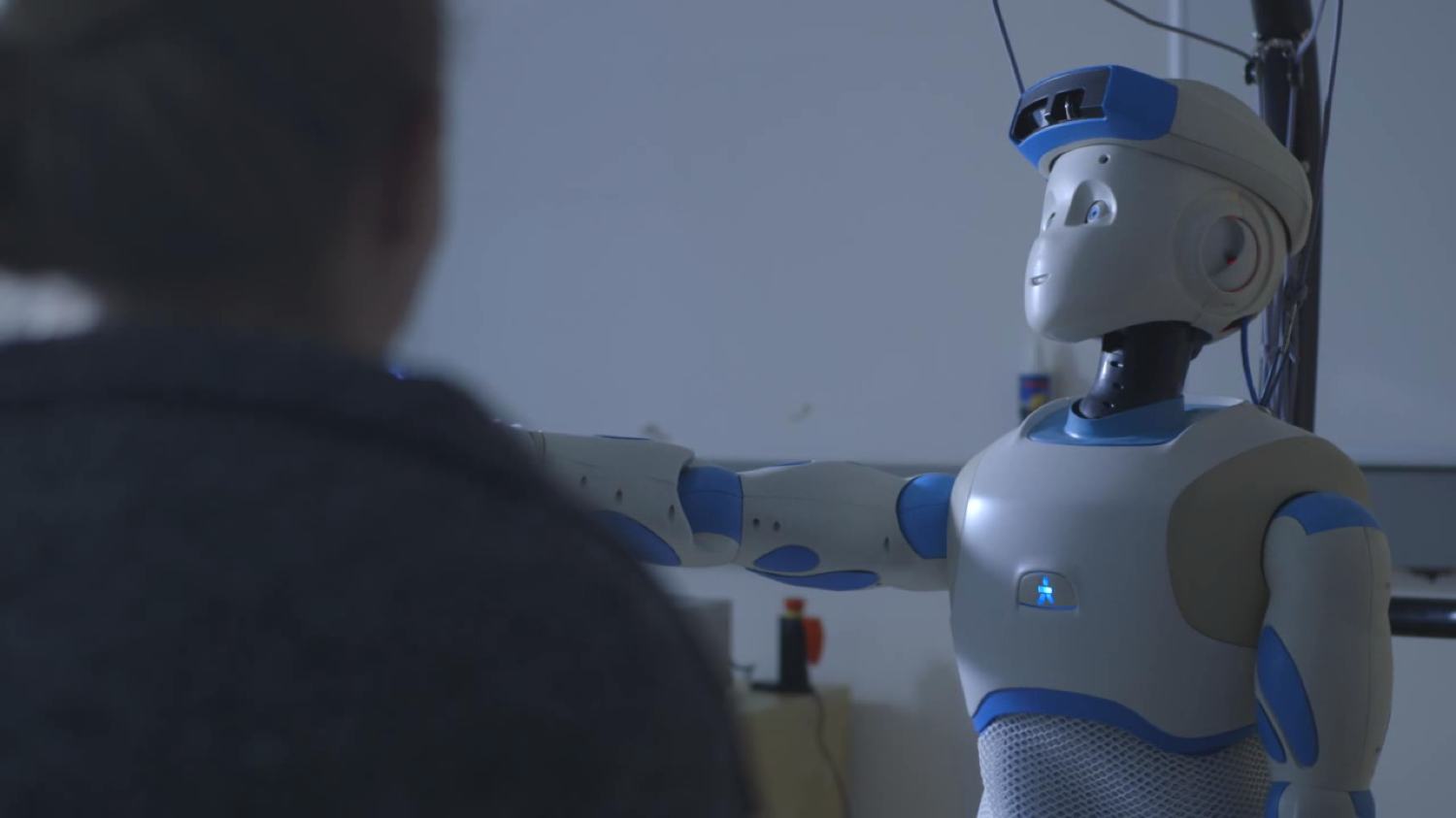
In our understanding, a core problem lies within the differences between the human and the technological perception of space. Cultural policies are based on meanings, their spatial situatedness and rich relationships amongst them. A fact, that raises the importance of topologies of personal human meanings, which are rooted in broader cultural meanings.
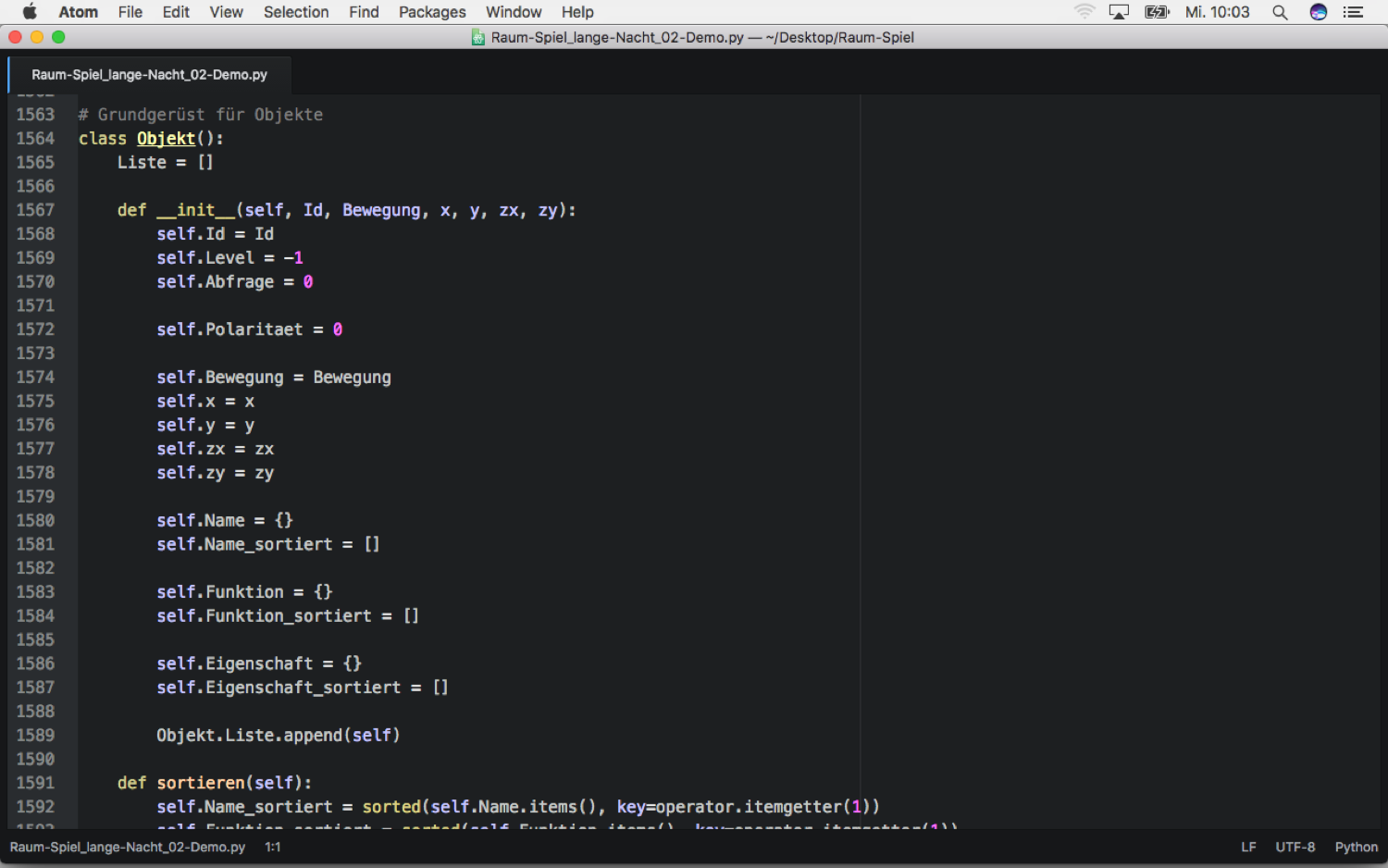
For this new field of problems, we argue, that new methods of investigation are needed, which have to be arts-based and interdisciplinary. Therefore, we have conceived an approach, where the different perception systems share a hybrid space model, which is generated in a joint effort by humans and assistive systems by means of an artificial intelligence. The aim of our project is to generate a cultural model of meaning that describes space (CSM), which is based on the interaction between human and robot. The role of the humanoid robot is defined as “companion“ (Haraway). This should allow for technical systems to include up to now ungraspable human and cultural agendas into their perception of space.
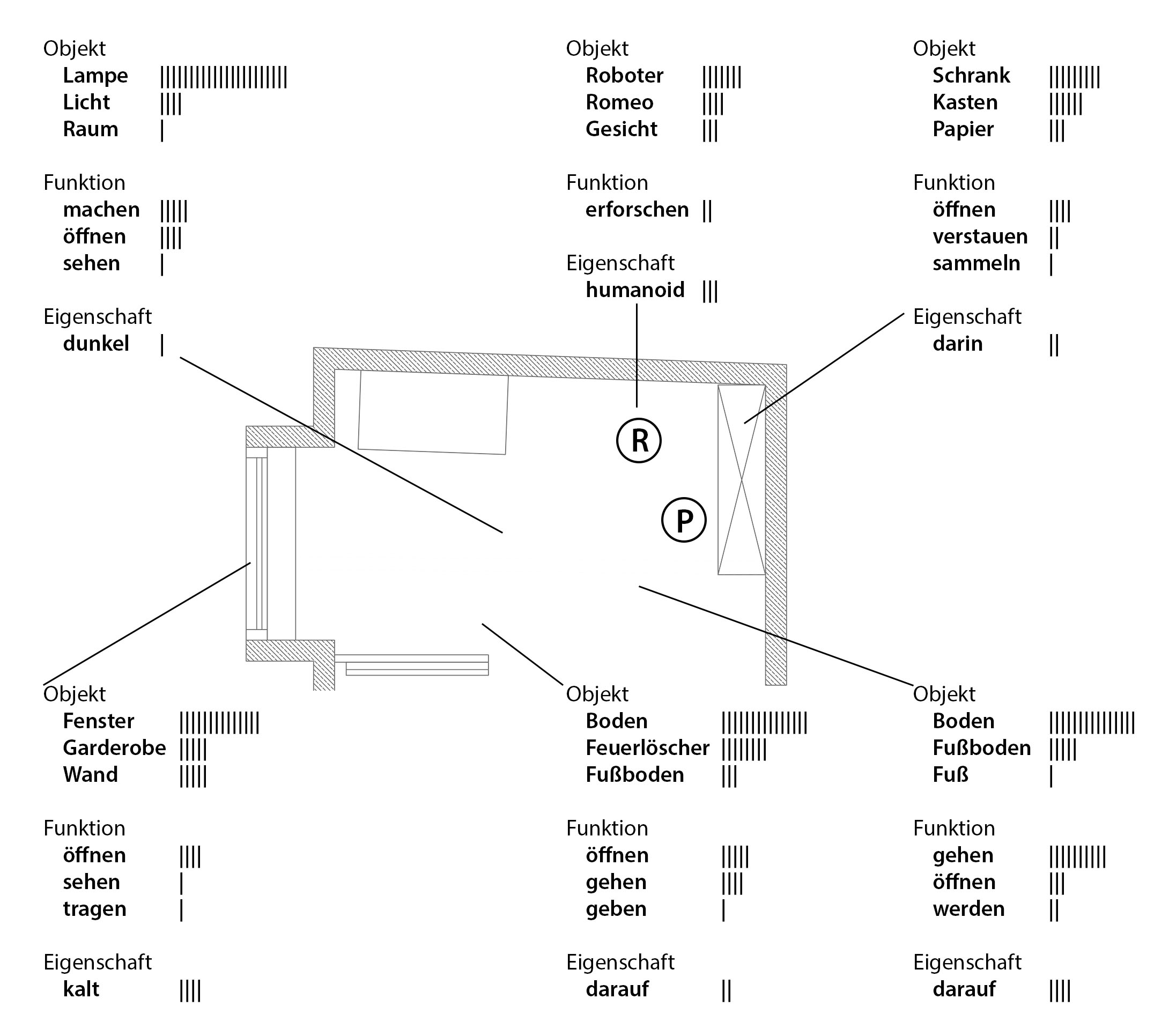
We have developed an arts-based research method called “Space-Game” that is derived from the philosophical language-game (Wittgenstein). It bridges expertise from artistic disciplines (visual arts education, architecture and drama) with those from computer science (automation technology and A.I. research) and the humanities (philosophy and human-robot interaction). The research topic of the project is therefore to develop our CSM, involving embodied artificial agents within the same context of meaning as humans. In doing so, our research project tackles how humanoid robots change cultural spaces and how we can develop a CSM through the interaction of humans and humanoids.
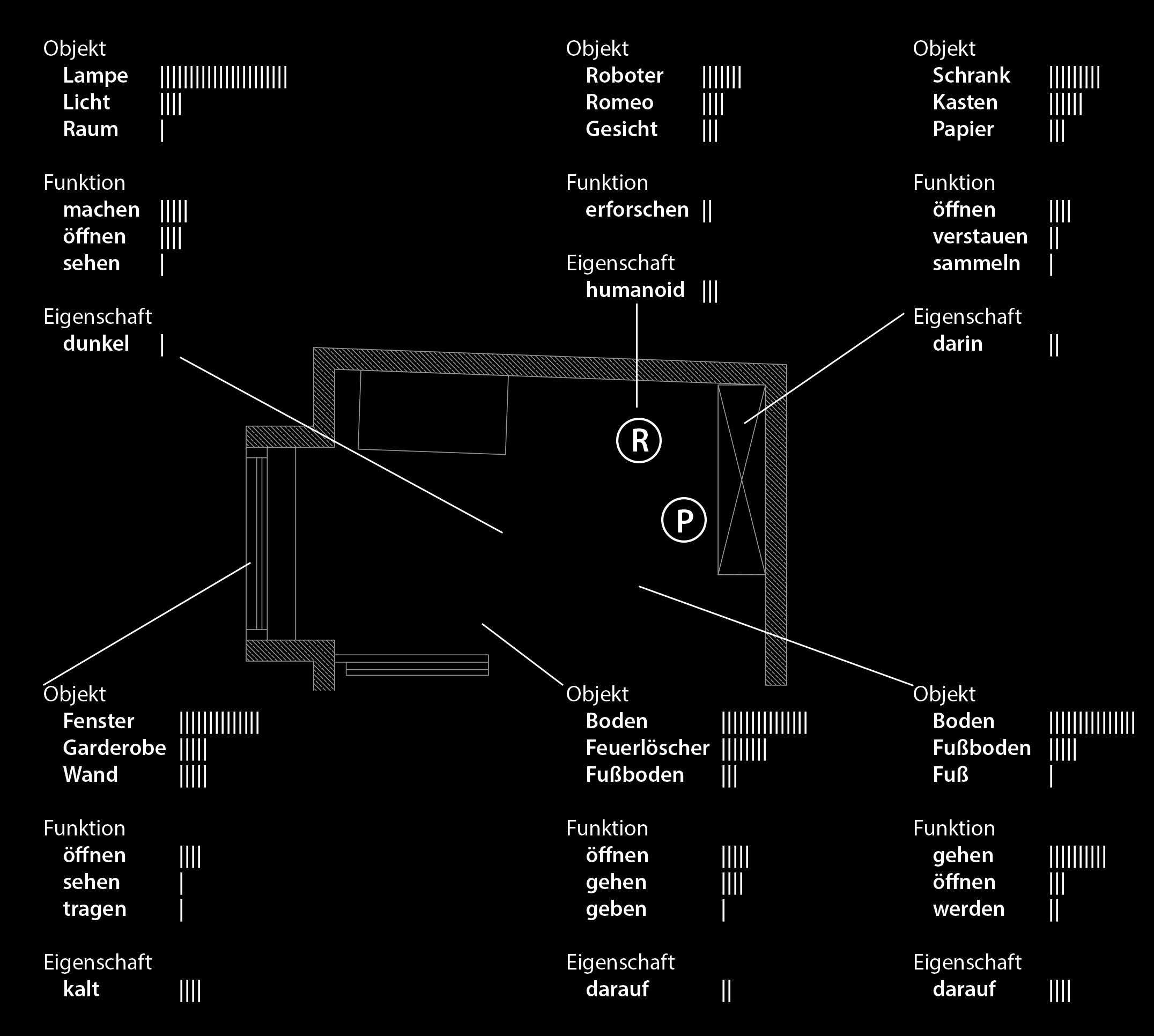
The space that is formed between humans is mainly based on the mutual production of cultural meanings and attributions. This is done by non-verbal and natural-language interaction between the humanoid and humans. It’s supposed to develop both, further understanding in the development of a space model of cultural meaning (CSM) as well as the development of the model as an artificial intelligence system.
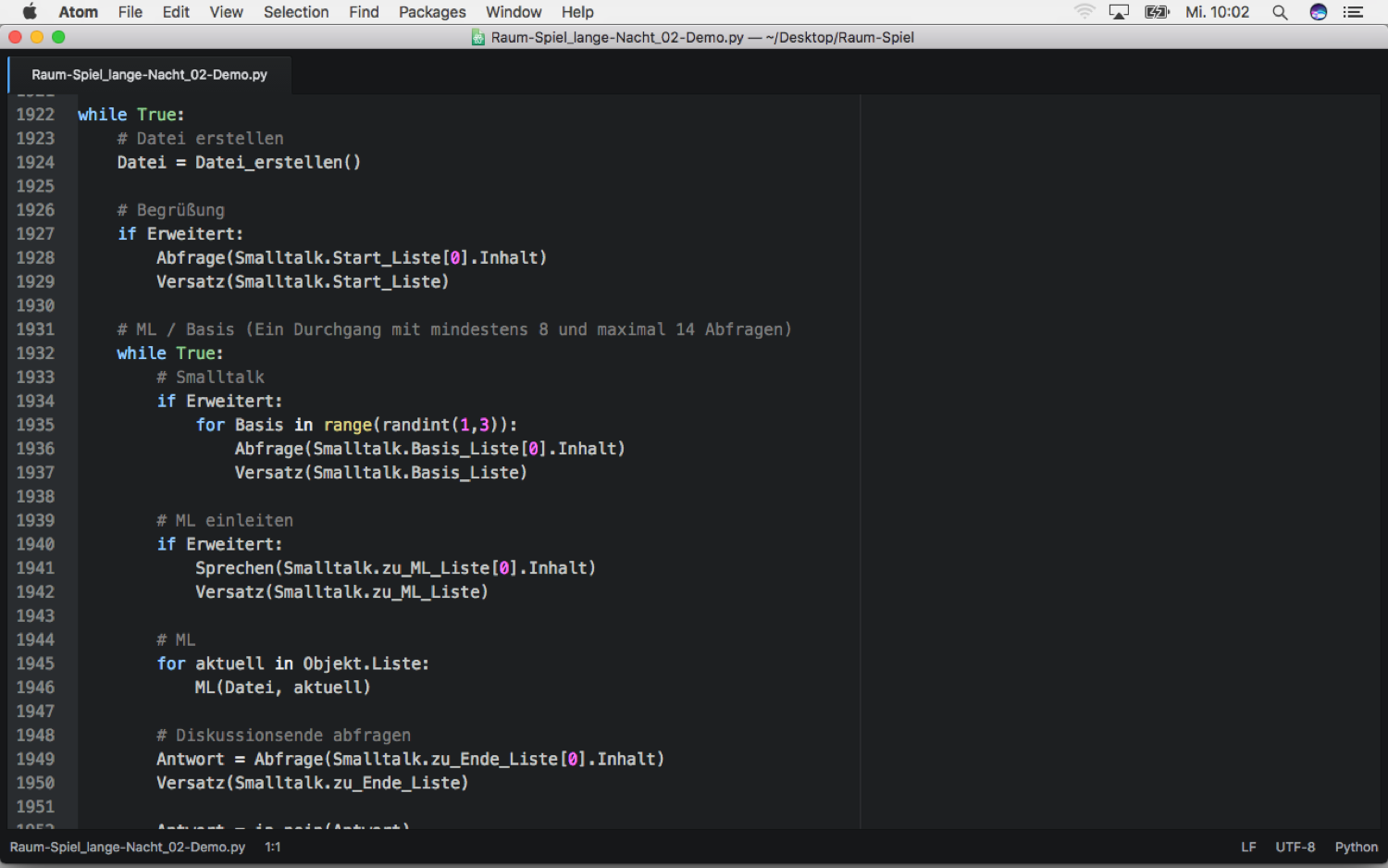
For now, we are about to establish a permanent loop between development and dramatization of cultural situations.
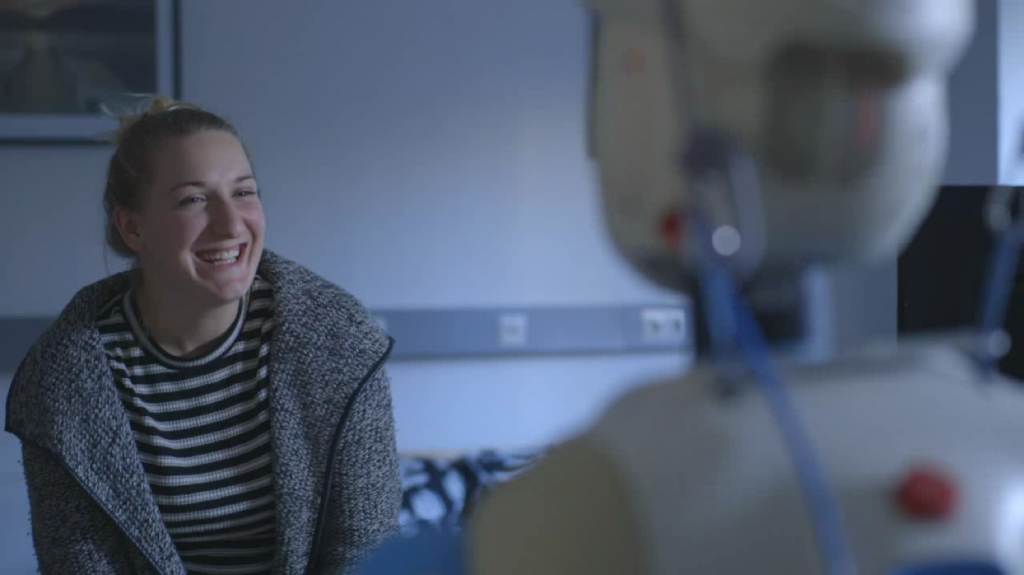
Arbeit – Digital – Affektiv; 3 Tanz-Performances und 1 Raum-Spiel in Wien
für die Eventserie #digitour von #diginclusion. Tanz-Performances Roboter und künstliche Intelligenz werden zu einem Teil unseres beruflichen und privaten Lebens. Sie werden zu immer neuen robotischen Geräten gebündelt die uns…
[S]care Wolf a Parlor Game with Robot Machina and lecture by Oliver at Ludic Method Soirée, 19_11_19, University of Applied Arts Vienna
Ludic Method Soirée program: a lecture by Daphne DragonaFrom devices of play to technologies of care a lecture by Oliver Schürer, H.A.U.S.Human[oid[ ]s]care hosted by Margarete Jahrmann, artistic PhD program,…
Workshop “Trust in Robotic Systems” at conference “Developing Support Technologies, Integrating Multiple Perspectives to Create Assistance that People Really Want”
Workshop „Vertrauen in robotische Systeme“ Um mit robotischen Systemen in unmittelbarer Nähe umzugehen, brauchen Menschen eine Art grundlegende Hypothese als Antizipation über das zukünftige Verhalten dieser Systeme: Vertrauen. Wie kann…
“Cultural Spaces and Humanoid (S)Care” publication at the Frontiers in “Artificial Intelligence and Application” Series
The workshop “Cultural Spaces and Humanoid (S)Care” had been held at the at the ROBO-Philosophy conference 2018 Conference „Envisioning Robots in Society—Politics, Power, and Public Space“ 14-17.2.2018 fulltext Abstract workshopHumanoid…
“An applied ethics to liaise humanoids with humans” publication at the Frontiers in “Artificial Intelligence and Application” Series
The text of “An applied ethics to liaise humanoids with humans” is derived from a lecture, held at the at the Robophilosophy Conference 2018„Envisioning Robots in Society—Politics, Power, and Public…
H.A.U.S. at the WeAreDevelopers conference (Vienna, May 16-18)
we got invited to do presentations at the huge, self proclaimed, “Woodstock of Developers.” Chris and Katharina are conducting public experiments with our Architectural space-game generating a Cultural space-model there.…